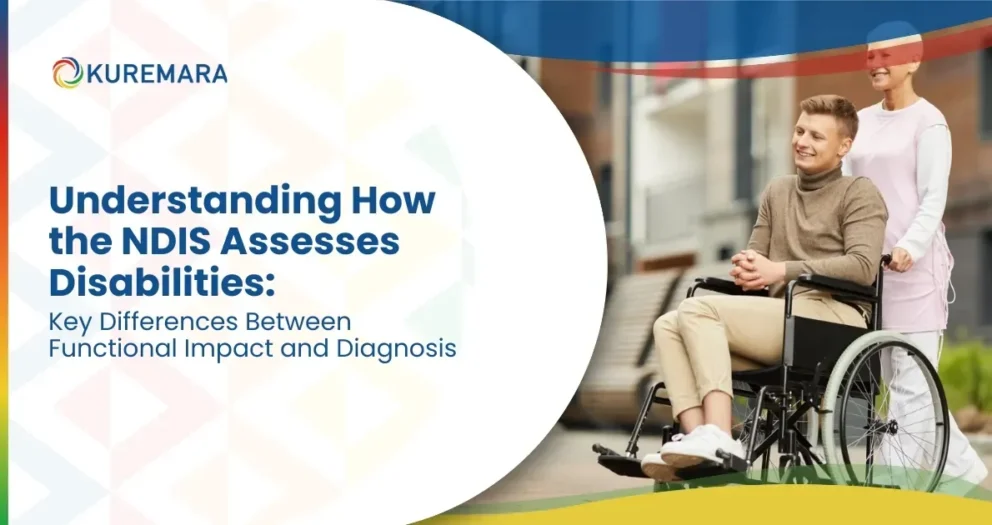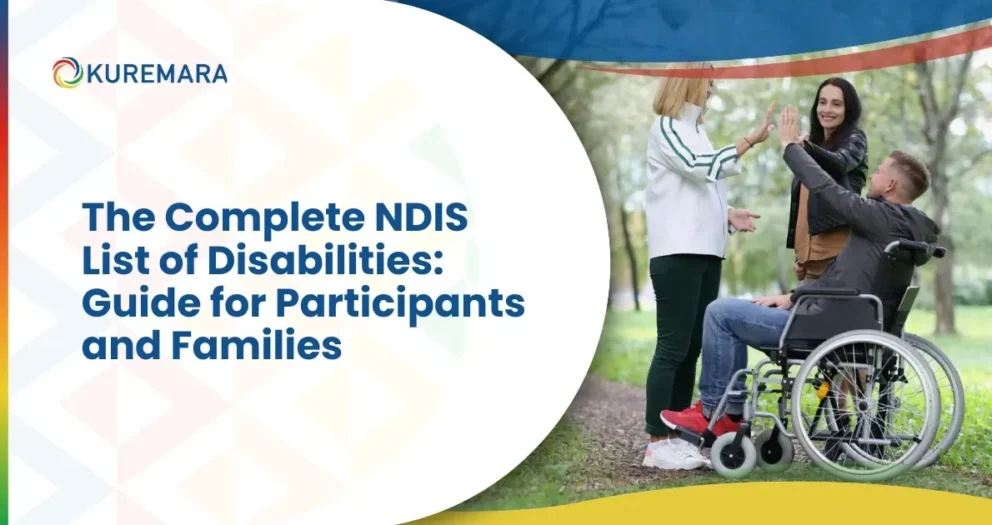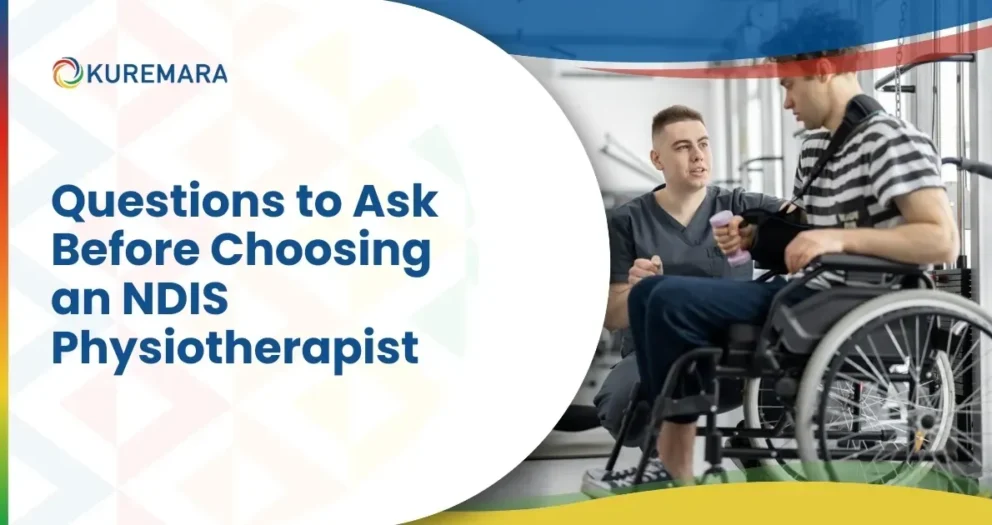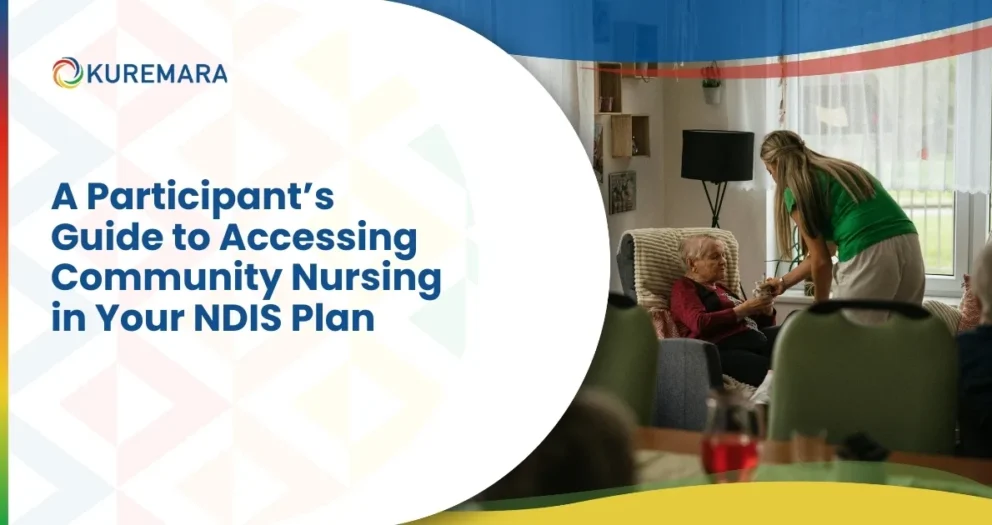Over the years, Australia’s National Disability Insurance Scheme (NDIS) has made tremendous revolutions in the way people access and engage with critical services-an entity that introduces prospects for including, empowering, and providing more independence. We have reached and impacted millions of Australians with disabilities over time. However, needs and expectations change with society change.
New technologies, policy changes, and public attitudes are helping to reshape the landscape of support for people with disabilities. All participants, service providers, and policymakers are well and truly in the game with great promise but high stakes. In the context of the cut-edge assistive technologies to the ever-rising demand for tailored, person-centered care, there are signs that flexibility and collaboration are the keys to unlocking future disability support.
This paper discusses the broad trends shaping NDIS support services, to progress into lines of reforms and changing expectations that ultimately shape up the future. It underlines the tremendous significance of registered NDIS providers in riding through waves as they address change and operate towards supporting quality concerns in a responsive, sensitive manner that is inclusive and empowering for all participants. The knowledge of trends in the future will help build a more equal and accessible future for disability communities in Australia.
NDIS Participants and Their Evolving Needs
This scheme initiated to provide person-centred care so that the participants could lead more independent and productively. The needs and expectations of the participants, about diversity, have also grown with the scheme. The demand for highly personalised services is a complex and individualised reflection of the disability support needed. To the service providers, it means innovations which would consistently result in a meaningful effect on the lives of the participants.
The disability market in Australia needs to be constantly understood regarding its growth and challenges. So, the National Disability Insurance Agency (NDIA) provides market information on specialist disability accommodation through its SDA Demand Projections Report.
This report shows the long-term estimations while bearing on the budget. It also estimates SDA demand through the data provided and assists in understanding the budget. Even though this report is supposed to just a guide, it projects the growth percentile which should be considered and worked upon.
You can gain access to the data shared publicly so there is a great opportunity to support NDIS participants, locate new business opportunities, and help you make best decisions to understand the disability market in Australia.
According to the Report, there is a 2.4% growth rate per annum projected from the year 2022 until 2042.
A Soaring Demand for Tailored Care
Proper disability support rests upon tailoring. Such needs for NDIS participants require better services in achieving the development of a new skill, accessing education, and safe movement. A force like this compels the registered NDIS providers to become participant-driven, as they have constantly to strive to vary from the given models so that they may come up with solutions that reflect the peculiar challenges and aspirations.

Stat Credit: Government of Australia Care Sector Demand Map
This chart gives us the statistical level 3 regions with the highest forecasted growth as compared to the current service demand. It is a 3-year forecast which predicts double than the current service demands. These are areas where there is a growth beyond 100%.
Technology-Driven Expectations
It shows immediate advancement of assistive technology that changes the possibilities of living with disabilities. Intelligent devices in communication, smart mobility tools, and digital health tools are becoming a must for daily life. It is thus not only important for betterment of quality life but also gives independence and confidence. The comprehensive NDIS support services, therefore, should cope with the increasing expectations of participants.
These needs, then, can be met so that the current scheme is continually the transformational force for participants’ lives-embracing and enabling all.
NDIS Updates and Reforms: Paving the Way for Change
The NDIS is the bedrock support for Australians with disabilities, and to remain successful, it requires the updates and reforms that come with progression of the scheme. Changes are needed to improve access and efficiency in operation, but they also bring unknown challenges to participants and providers that must be accepted and positively acted upon.
Key NDIS Reforms to Watch
Recent NDIS reform suggests a high intent towards making the scheme better performing and with better outcomes for participants. The administration of efficiency is being improved through the slashing of delays in approving services and delivery of help to participants when they call for it. Stronger oversight that is now empowering participants by increasing transparency and control over plans are provided. Moreover, new stronger controls are implemented to avoid embezzlement. Thus, the scheme’s integrity and fairness are reinforced. These are implemented to promote trust, while keeping participant welfare paramount.
Navigating Funding Adjustments
Funding changes are a common aspect of NDIS updates, which remains a concern for both participants and providers. Most people require disability support services in performing most day-to-day tasks, and a minor change in funding distribution has significant rippling effects. Registered NDIS providers must be aware of the changes, responsive to them, and adjust their strategies in line to avoid disruption and ensure service continuity.
Clearly, when it opens its arms to change and readies the community for the possible changes in funding the scheme will evolve more as the requirements of participants demand and consequently open avenues to a more inclusive and equitable future.
Emerging Trends in Disability Support Services

The new age of disability support is transforming radically because of social and technical change. New support services are now more inclusive, innovative, and participant-focused so that people receive empowering care and are uplifted. Here are some trends that are most crucial to this evolving sector:
Person-Centred Care
Person-centered care has become the heart of services supporting people with disability. It has placed participants as owners of their plans, allowing services to be tailored according to specific goals and preferences of these individuals. Person-centered support aims towards securing independence and personalisation while ensuring that help is meaningful and changing in response to an individual’s needs.
Workforce Transformation
Disability support worker’s role is also becoming complex. There is an expectation that workers, in order to engage with participants, develop technical and emotional competencies. Upskilling in mental health support, assistive technology, and cultural competency help workers more adequately prepare for the expanded roles associated with new caregiving needs. Such a transformation is needed to offer quality, responsive care.
Increased Focus on Mental Health
Given that mental health and physical well-being are no longer distinct entities but rather components of one another, many NDIS support services have developed programs that include psychology counseling advice. Counseling and mental health education may be part of the all-inclusive care support that those participants in this program may require.
Digital Accessibility
Digital solutions shift the game on disability support accessibility. It allows the participant to log in online and book appointments, check funding, and even talk with providers. Such solutions ease the things done and empower participants, providing support services.
These trends reflect a sector committed to continuous improvement, committed to promoting participant empowerment and inclusion while embracing innovation to face challenges of the future.
The Role of Registered NDIS Providers
Therefore, it is at the middle tier of registered providers where success of this disability scheme will hang; that is, participant access has been ensured to some excellent and reliable and high-quality services that target participants’ needs. Since the dynamics of disability support services are drastically changing, such providers should henceforth evolve with their changing needs to be relevant.
Quality Assurance
The registered providers strictly adhered to the standards put in place. The guidelines offered protection to the services rendered at the same time as ensuring safety, transparency, and accountability to participants. Maintaining quality assurance processes ensures trust among the participants and enables them to be confident of their choices. Participant expectations are translated into providers’ offerings through regular audits with feedback mechanisms that allow for consistent delivery of impactful care.
Embracing Innovation
The progressive enablers regard innovation as an enabling force in the world of disability services. Hence, telehealth, wearable devices, and other AI-based tools are increasingly becoming a part of service models to improve care delivery. Telehealth enables access at remote locations for support with therapists; data-driven care plans provide insights with positive outcomes at personal levels, and operations become streamlined with services made more responsive and efficient.
Collaboration Across the Sector
Cooperation is important in dealing with this dynamic and complex landscape. It is registered providers that ensure cooperation with participants, other providers, and policymakers in helping the sector find solutions and innovative ideas to common challenges. The coordination of services under partnerships across the sector reaps benefit from allowing it to better enhance holistic outcomes.
Registered NDIS providers will play a very critical role in the creation of a more inclusive and supportive system for all participants as it becomes even better and more effective, prioritising quality, embracing new technologies, and encouraging cooperation. Commitment to excellence is what keeps this scheme in line with its continued success.
Challenges in Meeting Future Trends
As a result of changing nature and increasing numbers, the future for which the disability support sector is poised to emerge is bound with enormous challenges not only for NDIS participants but also providers. This must be overcome so that long-run success and sustainability of the scheme are maintained along with the rising needs and preferences of participants.

Workforce Shortages
A more critical issue in the industry is a lack of expertise in its workforce. The rising demand for disability support workers has compelled the industry to address critical shortages in recruitment and retention of competent professionals. With the new requirements of having to add the field of technology, mental health, and personalised care, it has become even more challenging to fill the gaps. Competitive wages, clear career pathways, and professional development opportunities are also imperative to bridge this deficit by encouraging more people to pursue careers in the field.
Funding Constraints
The other very critical threat is the budgetary pressures on the NDIS. The funding system would quite often thwart the access participants have towards needed support services to proxy their living standards. Given that registered providers are automatically influenced by an unpredictable funding model, long term planning becomes nearly impossible. For this reason, on one hand, there is a need to have effective advocacy about funding, transparent allocation, and resource efficiency for sustainability of the scheme to deliver much-needed support.
Navigating Change
With frequent NDIS updates and reforms, the requirements become more agile for the service users and providers. With different eligibility criteria, models of service delivery, and funding structures that may need a change, it will obviously cause some confusion and disruption to the care processes. This is efficiently achieved through proactive engagement, clear communication, and training among the stakeholders.
These issues might help to build a stronger support system that would further empower and uplift the participants in the years to come.
Future Trends in NDIS Support Services
Support services are standing on the brink of a revolution which is heavily going to be influenced by technological advancement, social attitude change, and newly evolved models of care. Such changes have made disability support more inclusive, accessible, and participant-centered, changing the face of the sector.
Technology-Integrated Care
Technology enters the stage in the future support services. Telehealth has become a tool for everyone, allowing the accessibility of health care and therapy directly at home, improving convenience, and reducing associated travel barriers. Wearable devices include health monitors and mobility aids that make it easier for participants to live independently and be in control of their health. Smart home technologies can enhance quality of life through such things as automatic lighting and voice-activated home systems. As increasingly accessible and advanced tools become more prevalent, it will be support services that include care plans that support that best because participants are entitled to the best resource toward bettering the lives of such participants.
Community-Centred Support Models
Community-based care has focused on inclusion and self-reliance. The participation of disability support for people with disabilities in community-wide initiatives will increase the number of clients while minimising the number of intakes in the institutions. Shared housing support programs, local employment, and participation in communal living are being embraced, providing the participants with the feeling of being more integrated and supported in their surroundings.
Environmental and Sensory Innovations
Thirdly, adaptive innovations that provided those participants who had sensory aversions or special needs for their environment began to emerge. Sensory-friendly venues, adaptive furniture, and individualised environments enhance accessibility and comfort of use better. These solutions enable people to have safe and supportive surroundings, which impacts their ability to succeed in those surroundings.
This scheme will be in the position to move forward in the evolutionary process, open-minded toward changes and reflection of a changing world by forward-thinking, participant-centred support offered.
Disability Support Worker Responsibilities in a Changing Landscape
Role for the disability support worker changes due to evolving participant needs and developing care models. Now, these professionals are expected to master a complex and dynamic landscape with greater skill diversity to provide quality disability support services better.
New Skills for a New Era
The core activities of caring for a person with a disability, including helping with daily living and mobility, are unchanged. However, this new role has much more embedded in it. There must be an increase in the digital literacy of the skills by the workers so that participants can take advantage of the support technologies offered in which there could be use of smart devices or telehealth platforms. Cultural awareness is also important to ensure that the support offered resonates with all the backgrounds of the participants. Crisis management skills become more paramount when the workers handle difficult situations, such as mental health crises or unexpected change in care needs. An employee will need to adapt to or be committed to continuous learning about new technology and changes in expectations.
Building Strong Relationships
Having such core skills as the ability to build independence and help participants achieve their personal goals and make care aspirational for them is what has, so far, enabled them to build trust and develop empowering relationships with participants. A foundation of interpersonal skills, empathy, and communication skills has availed success in the role.
Thus, this shift in the care environment requires support workers to fill such gaps, embrace innovations, and move into holistic services participant-centered.
Evolving Support Services: Preparing for Tomorrow
The situation is rapidly changing regarding the provision of services of disability support. Participants and service providers need to be proactive. New technologies, policies, and care models change the balance of disability support since continuous innovation and collaborative effort with strong participant empowerment changes the future of it.
Knowledge and Awareness
Enrolling participants to enable them to take the NDIS challenge head-on would be an important milestone for tomorrow. Much of this would be done by engaging in workshops, accessible digital resources, and community programs to empower the persons put in charge of their support plan. Through knowing rights, funding options, and available services, the participants will become enlightened and provided with choices and advocacy to stand for his or her needs. Education will be a potent tool that providers will use to empower participants to achieve independence.
Continuous Feedback Mechanism
Participant response informs the development of responsive and effective NDIS services. Beyond the creation of open lines of communication- surveys directly soliciting provider input, focus groups, or even online feedback mechanisms providers design services that work toward participant’s goals and expectations. Feedback guides meaningful improvement and quality of care.
That is why education, collaboration, and active engagement are evolving support services that can further empower it in the shaping of a more inclusive and adaptive NDIS system.
Kuremara as Registered NDIS Provider is Shaping the Future of Disability Support
Kuremara-being the leading registered provider-is likely to take a lead in embracing critical trends that enable the provision of innovative, participant-focused services. Kuremara gives itself the capacity to see where the future may shift and leads in changing the modes of delivering disability support in the way of inclusivity, empowerment, and excellence for all participants.

Harnessing Technology in Health Care
Kuremara with modern technology seeks to amplify the daily lives of participants. It has empowered individuals to provide an option of seeking consultations online, assistive mobility technologies, wearable devices guarantee that participants have a means of independent living. They are also facilitated with care plans tracking funding and communicating with the support team using digital portals.
Fostering Person-Centred Care
Kuremara personalises services and focused on activities that really will meet the goals of the participants. This approach allows participants to make decisions regarding their support, encourages independence, and develops skills. Care plans are adapted to specific needs to ensure that services mean something and are effective.
Workforce Transformation
It invests in upskilling employees to better serve the demands of modern times, such as mental health training, cultural competency, and technology use. Kuremara cultivates a compassionate yet skilled workforce so that people participating with Kuremara receive excellent, holistic care.
Strong Community Engagement
Kuremara weaves its disability support service into wider community initiatives with social inclusion and the breaking of isolation at their core.
Keeping up with the latest updates, Kuremara positions itself as a future-driven provider that remains keen on availing change-over outcomes for participants.
Conclusion
The fact that Kuremara is an NDIS-registered provider makes it sensitive to the trends directly affecting the futures of the participants in terms of defining the future of support to disability. Kuremara’s innovative, tailored, and empowering approach to each participant has helped individuals increase their independence, improve the quality of their lives, and regain confidence in their journey. Technology, flexibility in the delivery of services, and whole-of-life approaches to support form the very core of their ethos. And with Kuremara embracing all these trends in how disability support is designed, undergoing its transformation processes, thereby proving it all possible to have participants thrive within the ever-changing environment.
 care@kuremara.com.au
care@kuremara.com.au






